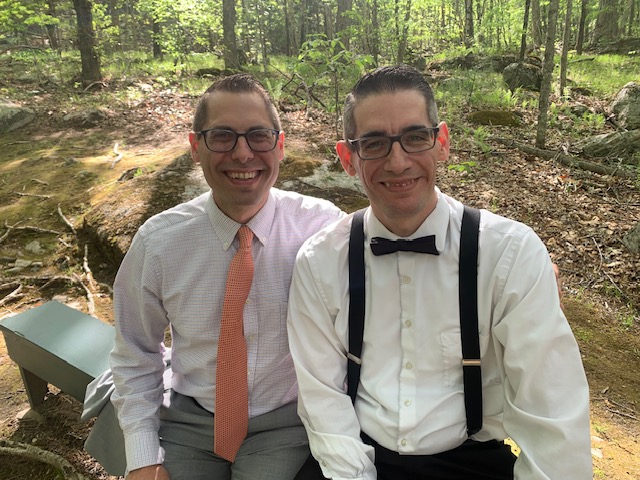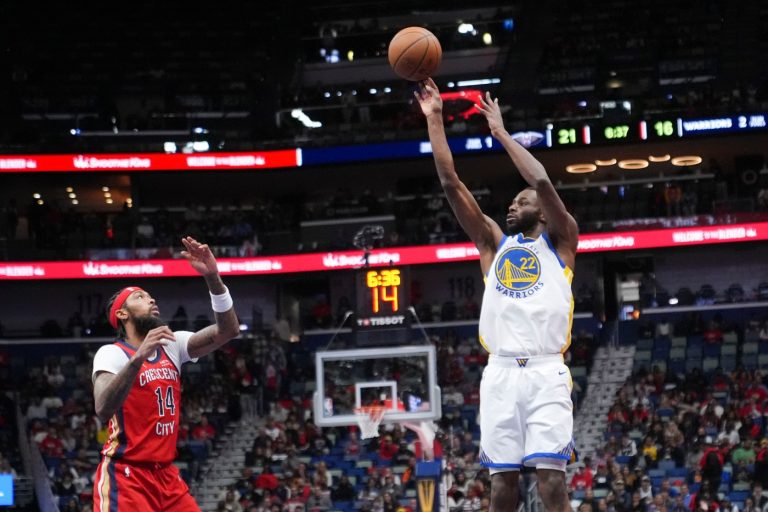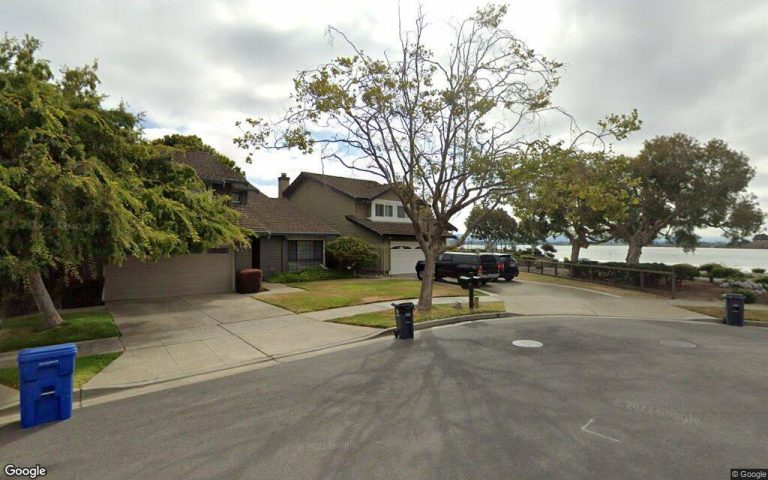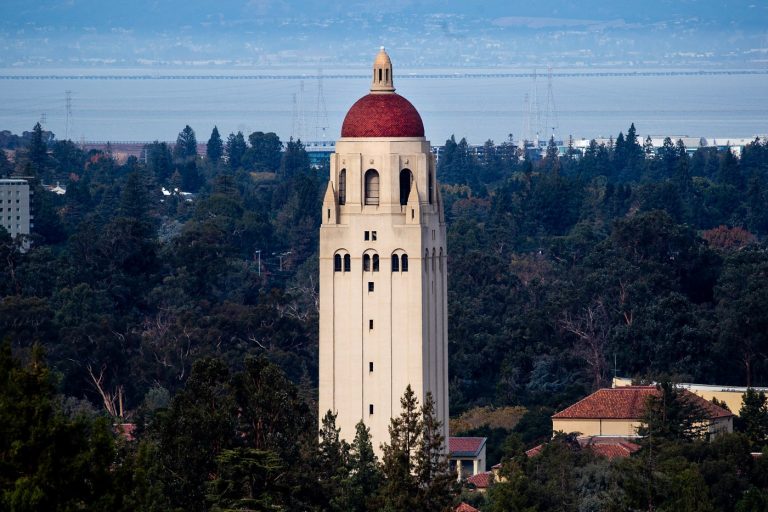A scathing obituary written by a Connecticut firefighter about his late dad has been abruptly removed from the internet, but that’s OK with the writer, he said, because in the 24 hours it was online, he got his message across.
“Everyone I care to see it has seen it. It served its purpose, take control of the narrative,” Timothy McLaughlin said. “Writing that obituary was very cathartic.”
McLaughlin, whose irreverent obit also has sparked widespread attention on social media, focuses on how he’s been “shunned” by his family for a decade because he formally left the Jehovah’s Witness faith.
McLaughlin, raised in the faith he now calls “cult-like,” said that he hadn’t been spoken to by his father since it was announced Oct. 1, 2013, to the congregation, a day before his 32nd birthday, that he was no longer a Jehovah’s Witness. He did reconnect later with a sister who needed help.
He was “disfellowshipped,” McLaughlin said. It all left him “deeply hurt.”
His father, James J. Becker, 81, a retired Milford firefighter, died Sunday.
RELATED: A lonely life ends. A brother writes a ‘brutally honest’ obituary.
The family’s traditional tribute posted online April 28 portrayed James J. Becker as a lover of his Jehovah’s Witness faith most of all, and of camping, road trips to Florida, playing Yahtzee, watching “Jeopardy!” and “Wheel of Fortune.”
“The quality many will most remember him fondly for though, was his love for people,” the family obituary says.
The obituary penned by McLaughlin, 42, and published online April 29 had a different spin.
While yes, dad liked Yahtzee and all that, McLoughlin said, there were glaring, hurtful omissions in the story.
McLaughlin wanted his obit to set the record straight.
McLaughlin’s version of dad’s obituary reads in part, “the previous obituary written by the family was highly misleading. It was accurate in saying that the part of James’ life that he valued most was his religion as a Jehovah’s Witness, but it failed to mention to what extent…this included disowning and shunning his adult son, Timothy, when he chose to leave the religion in October 2013.”
McLaughlin, who is gay and has been married to Joseph McLaughlin for eight years, was surprised in light of the “shunning” that his name was listed among Becker’s four surviving children.
But he was also hurt that his brothers’ wives names were mentioned along with the word “cherished” to describe them, but his husband, Joseph, was not.
Tim McLaughlin wrote in his version of dad’s obituary: “The previous obituary also failed to mention my cherished husband of eight years, Joseph McLaughlin.
The family could not be reached for comment.
Tim McLaughlin’s version of the obituary was also to appear in a Connecticut newspaper Sunday through Legacy, which he paid for.
But late morning April 30 Legacy informed him the post had to be taken down.
After extending condolences, Legacy wrote, “We are unable to publish this obituary as it references family conflict and includes negative references about the deceased.” McLaughlin received a full refund, he said.
McLaughlin said his father was considered a “stand up guy” in the community.
His decision to leave the faith was made through a lot of academic research, soul searching, McLaughlin said.
He said he also wrote the obit because there was “an obligation to speak out” and clarify because others may be struggling with their place in the faith and need to see there’s “hope for happiness,” he said.
“For the people who have left or are thinking about leaving, they need to know they’re not alone,” McLaughlin said.
McLaughlin, who was “disfellowshipped,” a buzzword in the religion, insists that despite what organization leaders say, “shunning” is required by the religion in such a case.
A Jehovah’s Witness spokesperson denied that claim.
“Each congregant who limits or ceases their social interaction with a former congregant does so of their own free will and choice based on their personal religious conscience,” reads a statement from the Jehovah’s Witness United States Branch, Wallkill, N.Y.
Related Articles
Geopolitics and the winner of this season’s ‘RuPaul’s Drag Race’
United Methodists repeal longstanding ban on LGBTQ clergy
Tenn. bill criminalizes helping minors get gender-affirming care
Judge rejects changing the name of California’s trans youth ballot measure
Supreme Court: Idaho can enforce ban on gender-affirming care for transgender youth
McLaughlin came out as gay to his parents and the greater public at 23. Homosexual behavior is considered a sin in the faith, but he was allowed to remain in the faith in good standing as long as he stayed celibate. McLaughlin says now that is an unnatural expectation for a young adult.
He said he finds the religion full of many rules and “control” that it was trauma-inducing to him as a child, he said.
Jehovah’s Witness don’t say the Pledge of Allegiance, vote, serve in the military, celebrate birthdays or holidays, associate with non-believers, and much more, he said. They aren’t allowed to say, “God bless you,” when someone sneezes, he said.
The Jehovah’s Witnesses provided the Courant with a broad statement in response to McLaughlin’s claims. They were told point-by-point what his claims are. The statement reads, in part:
“Jehovah’s Witnesses respect the free will and right of every individual to decide what religious beliefs he or she may have. We believe each individual has a right to change his belief system should he or she decide to do so. With that in view, we do not force our beliefs on anyone.”
Three months after separating from the faith organization, Tim McLaughlin met Joseph McLaughlin and they fell in love.
The obituary he wrote also reads, “Finally, I must say that despite all the hurt they have caused, my life is full of love and happiness and that the loss is truly theirs.”
Tim McLaughlin told the Courant he regrets writing in his obituary piece that the family’s obituary “attempts to humanize my father by mentioning his love of Southern Comfort, playing Yahtzee, watching Wheel of Fortune, etc.”
He said his dad was human and he should have used another word, such as “normalize.”
But he does stand by the line connected with that one, by saying the family’s obituary “fails to mention the dehumanization that he (dad) … (inflicted) upon me simply because I have beliefs that differ from theirs.”
Tim McLaughlin said while he’s critical of the organization, “I’m not trying to vilify the individuals that make up the rank and file membership. “
He said it’s easy to see the appeal of an organization that confidently claims to have an an answer to every big life question: what happens to us when we die? What is the purpose of life? How can you find happiness?
“The organization targets some of the kindest, most well-meaning people who may be at a vulnerable time in their lives or who are desperately searching for answers,” he said.












